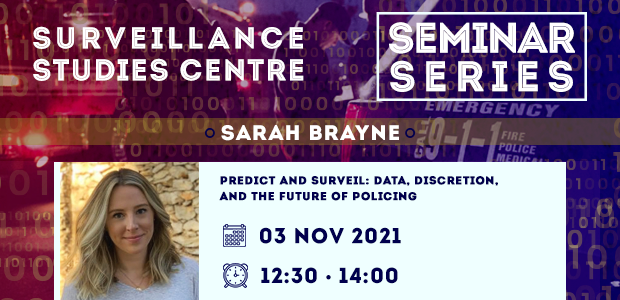
*We will send the seminar link and password to registered participants.
Please RSVP to Joan Sharpe by Monday, November 1, 2021.
Abstract:
Computational procedures increasingly inform how we work, communicate, and make decisions. In this talk, Brayne draws on interviews and ethnographic observations conducted within the Los Angeles Police Department to analyze the organizational and institutional forces shaping the use of information for social control. She reveals how the police leverage big data and new surveillance technologies to allocate resources, classify risk, and conduct investigations. Brayne argues the use of big data does not eliminate discretion, but rather displaces discretionary power to earlier, less visible parts of the policing process, which has implications for organizational practice and social inequality.
About the speaker:
Sarah Brayne is an Assistant Professor of Sociology at The University of Texas at Austin. In her research, Brayne uses qualitative and quantitative methods to examine the social consequences of data-intensive surveillance practices. Her book, Predict and Surveil: Data, Discretion, and the Future of Policing (Oxford University Press), draws on ethnographic research with a large, urban police department to understand how law enforcement uses predictive analytics and new surveillance technologies. In previous research, she analyzed the relationship between criminal justice contact and involvement in medical, financial, labor market, and educational institutions. Prior to joining the faculty at UT-Austin, Brayne was a Postdoctoral Researcher at Microsoft Research. In 2017, she founded the Texas Prison Education Initiative.
Everyone welcome!
For more information about our seminars, please visit: https://www.sscqueens.org/events/seminar-series